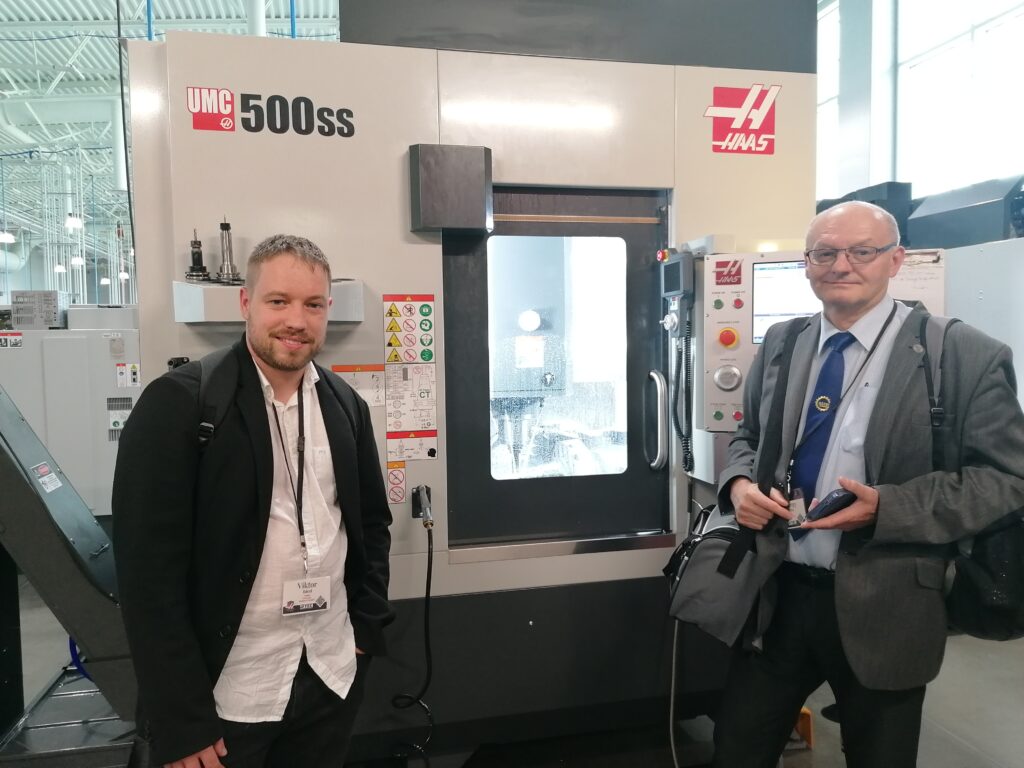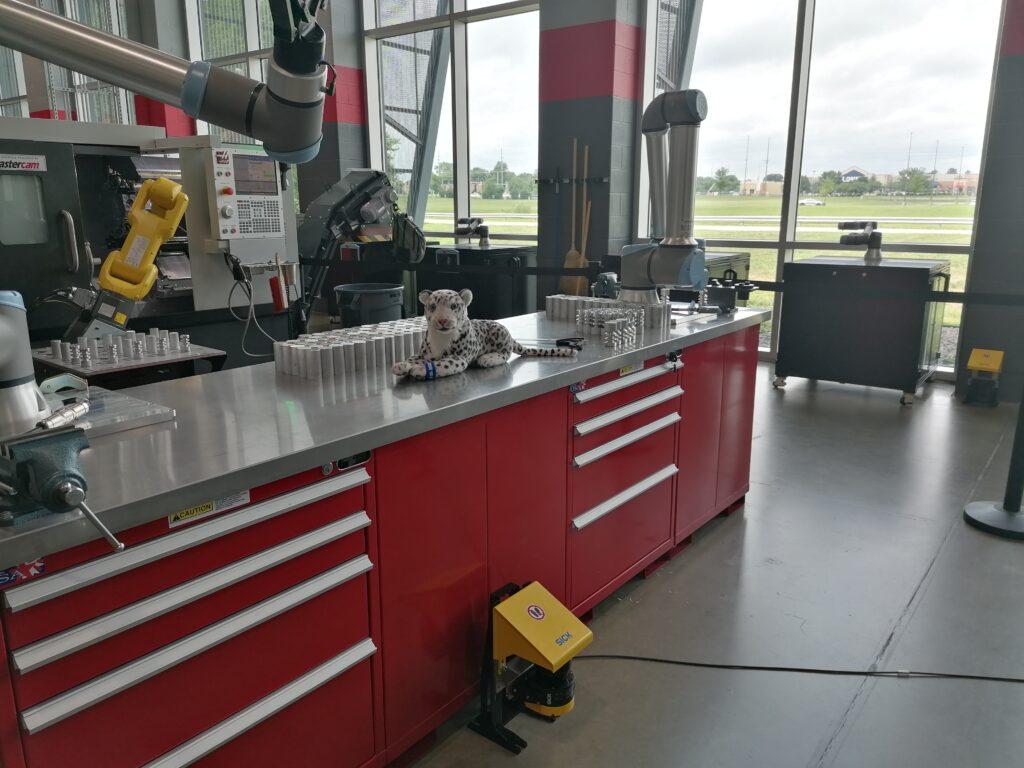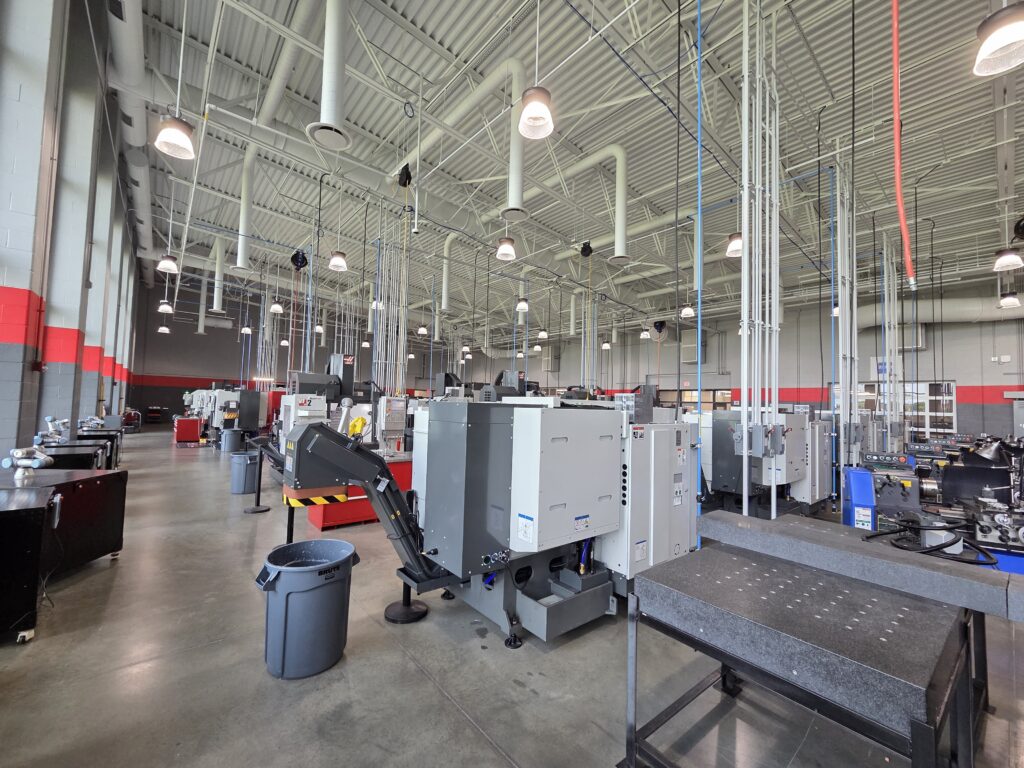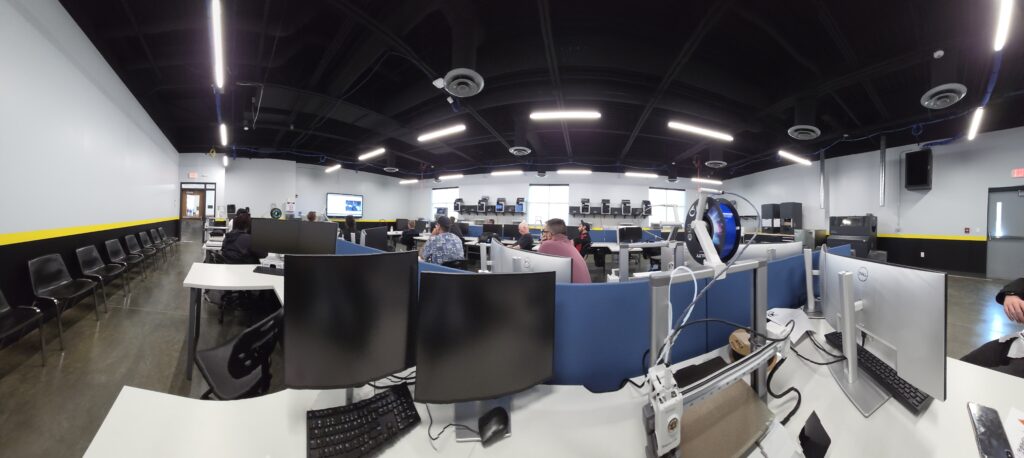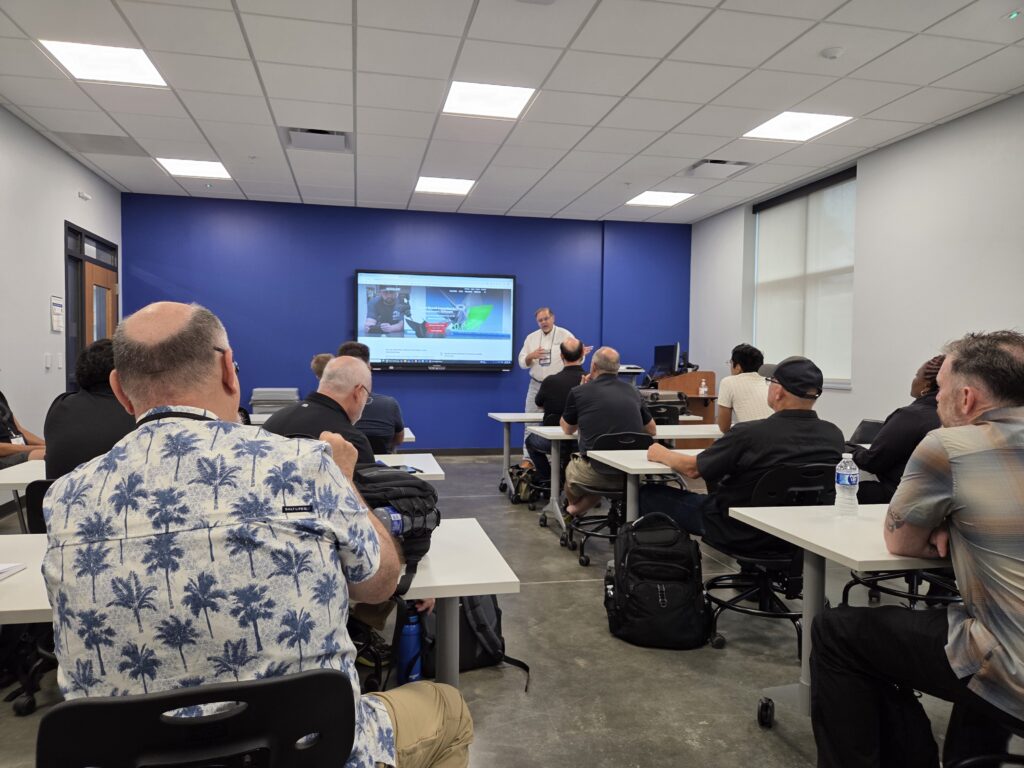We participated in the 18th HTEC conference
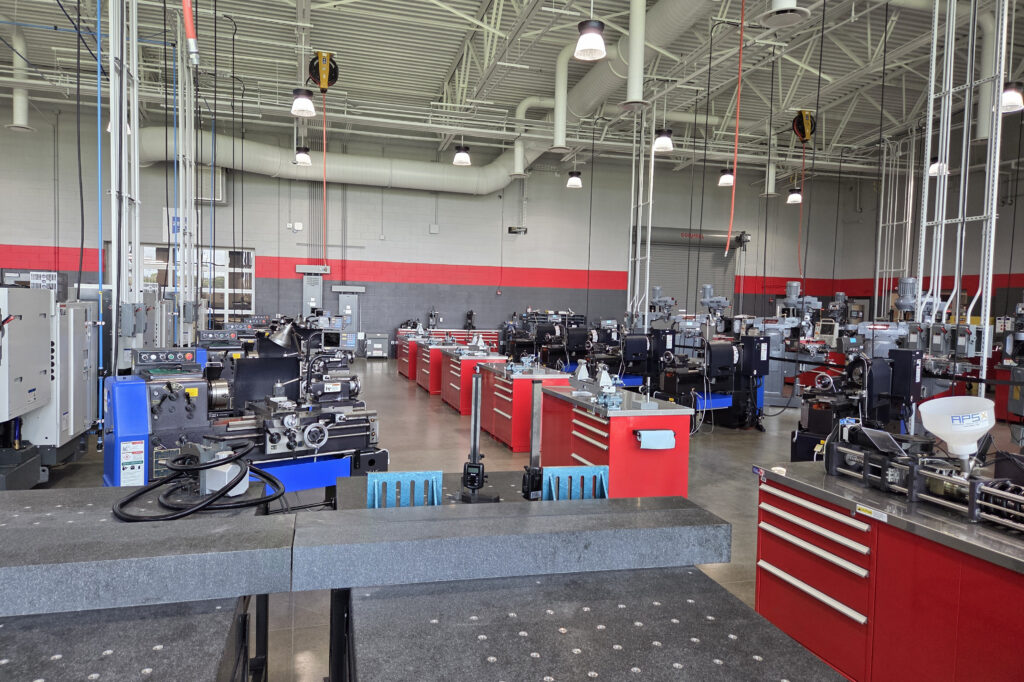
As part of the 18th Haas Technical Educators Conference (HTEC), Dr. György Czifra, Viktor Ráczi, and István Burai — lecturers at the Department of Manufacturing Technology of the Bánki Donát Faculty of Mechanical and Safety Engineering — participated in a study trip to Belleville, Illinois, at the campus of Southwestern Illinois College (SWIC). The conference aimed to connect educators teaching CNC technology with industry partners and academic professionals, while showcasing the latest developments in machining and manufacturing.
The Gene Haas Foundation plays a key role in supporting CNC education through scholarships, teacher training, and lab development. In 2024 alone, it provided over $32 million in funding, and to date, has contributed more than $225 million to educational initiatives. These grants have enabled many schools and students to access modern equipment and training opportunities.
SWIC offers practice-oriented training programs available in daytime, evening, and online formats. Through the Precision Machining Technology Program, students learn on modern CNC machines, lathes, and milling equipment, work with CAD/CAM software (such as Mastercam and SolidWorks), and prepare for careers as CNC operators, programmers, or toolmakers. The program is modular and offers certificates as well as A.A.S. degrees.
Among the software presented at the conference, Mastercam 2026 stood out with its AI-based Copilot feature, new surface finishing options, and automated measurement modules. Enhancements like 3-axis deburring, OptiRough Critical Depths, and Tapered Helix Entry further improve efficiency. GibbsCAM 2025 also introduced AI-supported features, including the up2parts autoCAM system, which automatically generates NC operations from 3D models up to 70% faster.
AI’s role in machining was a key focus: the Phillips Machinist App, for example, uses an AI-powered InstaAnswer feature to support learning by providing accurate, explanatory responses from an offline database. Student competitions encouraged solving real industrial challenges using CNC and 3D printing technologies.
Educational programs highlighted included ACE – America’s Cutting Edge Program, offering free online and in-person CNC training, and CRAFT Education from the Netherlands, which provides modular technical training in CAD, CNC, and metrology. Both initiatives aim to enhance practical skills and make technical education more accessible.
During lab visits, participants explored SWIC’s modern machine shops, rapid prototyping labs, robotic arms, and CNC-equipped classrooms. The campus also features a dedicated CAM training room, universal machines, and labs equipped with Mitutoyo measuring instruments.
Overall, the presentation offered a comprehensive overview of the state of CNC education in the U.S., its innovations, and opportunities for international collaboration. The insights gained contribute to the development of technical education in Hungary as well as in Obuda University and provide inspiration to Bánki Faculty for shaping future educational directions.
